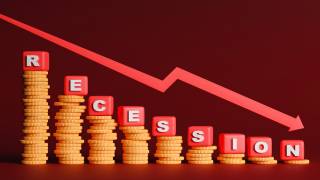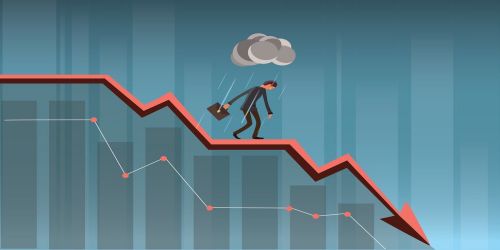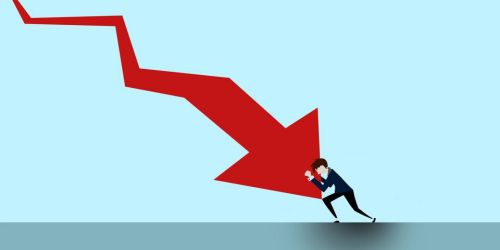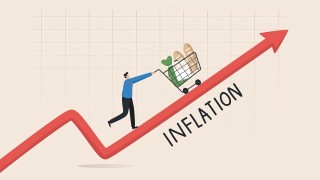
How to invest during a recession?
Advertisement
Investing during a recession can be challenging, but it also presents opportunities for those who are well-prepared and have a clear strategy. Recessions are periods of economic downturn characterized by declining economic activity, rising unemployment, and reduced consumer and business spending. During such times, it's important to make informed decisions to protect and potentially grow your wealth. Here are some strategies and tips for investing during a recession:
Build a Strong Financial Foundation:
Before you start investing during a recession, ensure that your financial basics are in order. Have an emergency fund with enough money to cover at least six months' worth of living expenses. Pay off high-interest debt, such as credit card balances, to reduce financial stress.
Diversify Your Portfolio:
Diversification is a fundamental principle of investing. Spread your investments across different asset classes, such as stocks, bonds, real estate, and cash equivalents. Diversification helps reduce risk because different assets may perform differently during a recession.

Quality Over Quantity:
During a recession, it's crucial to focus on the quality of your investments rather than the quantity. Look for companies with strong balance sheets, low debt levels, and sustainable business models. Avoid highly leveraged or speculative investments.
Dividend Stocks:
Consider investing in dividend-paying stocks, especially those from established companies with a history of maintaining or increasing dividends during economic downturns. Dividend income can provide a source of passive income during tough times.
Defensive Stocks:
Defensive stocks belong to industries that are less sensitive to economic cycles. These include sectors like healthcare, utilities, and consumer staples (e.g., food and household products). Companies in these sectors tend to be more resilient during recessions.
Value Investing:
Recessions often create opportunities to buy undervalued stocks. Look for companies with strong fundamentals that are trading below their intrinsic value. Conduct thorough research and consider long-term prospects.

Dollar-Cost Averaging:
Rather than trying to time the market, consider using a dollar-cost averaging (DCA) strategy. DCA involves investing a fixed amount of money at regular intervals (e.g., monthly or quarterly), regardless of market conditions. This approach can help reduce the impact of market volatility.
Bonds and Fixed Income:
Bonds can provide stability to your portfolio during a recession. Consider government bonds or high-quality corporate bonds, which tend to be less risky than stocks. Be cautious with lower-rated or junk bonds, as their default risk may increase during economic downturns.
Precious Metals:
Some investors turn to precious metals like gold and silver as a safe-haven asset during recessions. These metals have historically retained their value in times of economic uncertainty. However, their prices can be volatile, so it's essential to diversify within this asset class as well.
Real Estate:
Real estate can be a viable long-term investment, even during a recession. Look for income-generating properties like rental units. Real estate investment trusts (REITs) are another option, providing exposure to the real estate market without direct ownership.
Stay Informed:
Keep yourself informed about economic conditions, government policies, and market trends. Read financial news, follow economic indicators (e.g., GDP growth, unemployment rate), and consider seeking advice from financial experts.
Long-Term Perspective:
Remember that investing during a recession is not about short-term gains but long-term wealth building. Be prepared for fluctuations in your portfolio value and avoid making impulsive decisions based on short-term market movements.
Rebalance Your Portfolio:
Periodically review and rebalance your portfolio to ensure it aligns with your investment goals and risk tolerance. During a recession, some asset classes may perform better than others, leading to an imbalance.

Tax-Efficient Investing:
Consider tax-efficient strategies to minimize your tax liability. For example, tax-loss harvesting allows you to offset capital gains with capital losses, reducing your tax bill.
Seek Professional Advice:
If you're uncertain about how to invest during a recession or lack the time to manage your investments, consider consulting a financial advisor. They can provide personalized guidance and help you develop a recession-resistant investment strategy.
Stay Disciplined:
Emotional reactions to market volatility can lead to poor investment decisions. Stay disciplined and stick to your investment plan. Avoid panic selling during market downturns, as it can result in realizing losses.
In conclusion, investing during a recession requires careful planning and a focus on long-term financial goals. Diversification, quality investments, and a disciplined approach are key to navigating economic downturns successfully. Remember that recessions are part of the economic cycle, and with patience and prudent strategies, you can use them as opportunities to build wealth over time. Always consider your individual financial situation and risk tolerance when making investment decisions.
Advertisement
Advertisement
- Previous article
- You need to know this to play Candy Crush Soda Saga!
- Next article
- The Power of 0% APR Credit Cards: Pros and Cons!
Advertisement
OTHER NEWS

Weighing the Pros and Cons: Using a Personal Loan to Tackle Credit Card Debt.
BY Wendy

Insuring Your Peace of Mind: An Overview of Common Types of Insurance.
BY Wendy

Here's What you Need to Know About Balance Referrals
BY Little Grapes

Will House Prices Fall in 2023?
BY Wendy

How do I buy a Home and Invest in the United States?
BY Little Grapes

Should you Choose a Real Estate Agent When Buying a Home?
BY Wendy
RECENT NEWS
-

US Stock Market in 2024: A Year of Volatility and Uncertainty!
-

Navigating the Path to Retirement: An In-depth Look at US Retirement Savings
-

Turning the Tide: Navigating Through a Denied Homeowner is Insurance Claim!
-

Demystifying Bitcoin
-

Securing and Maintaining High Limit Credit Cards: A Comprehensive Guide!
-

The investment value of men’s watches
 1
1 1
1